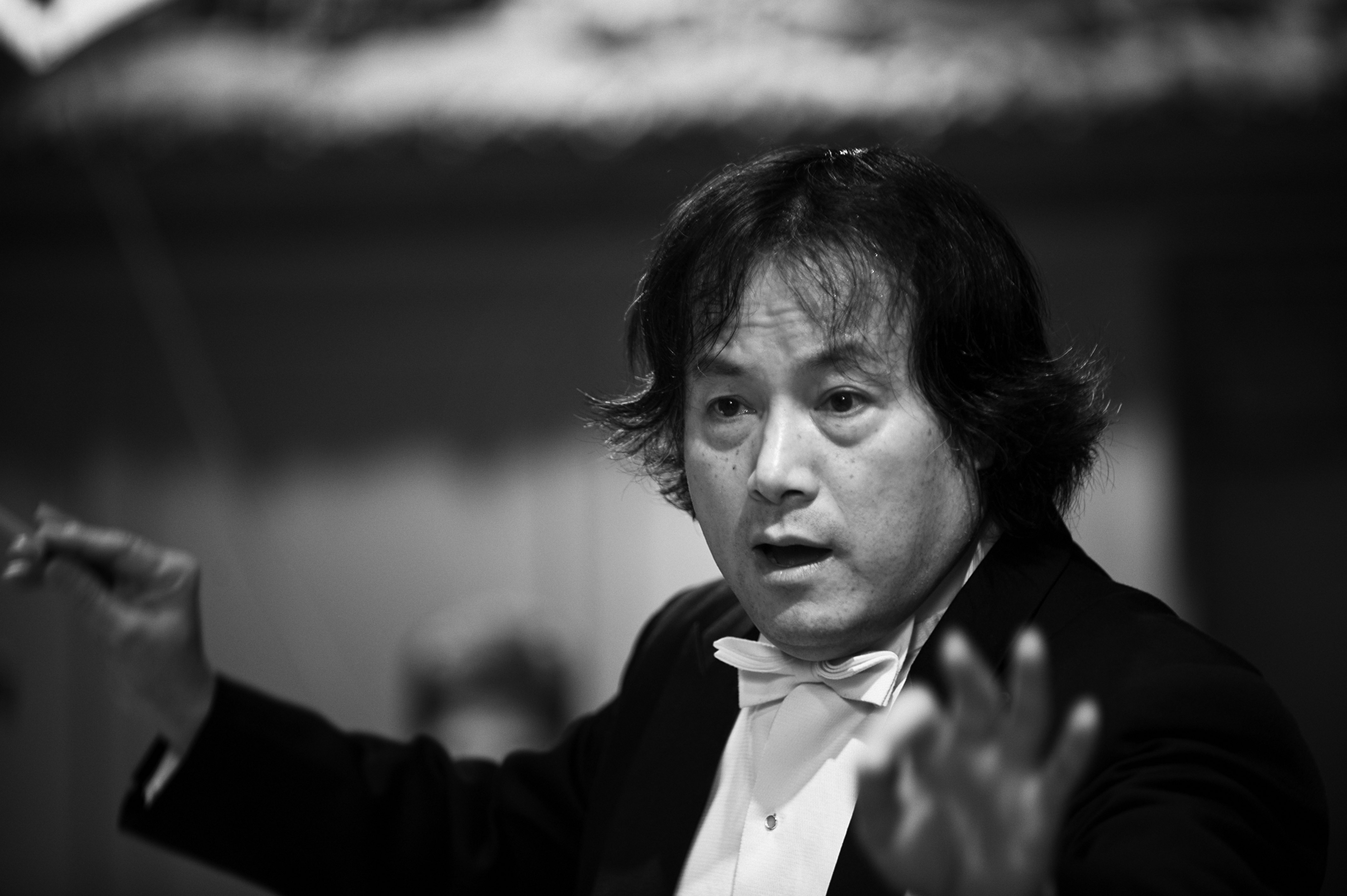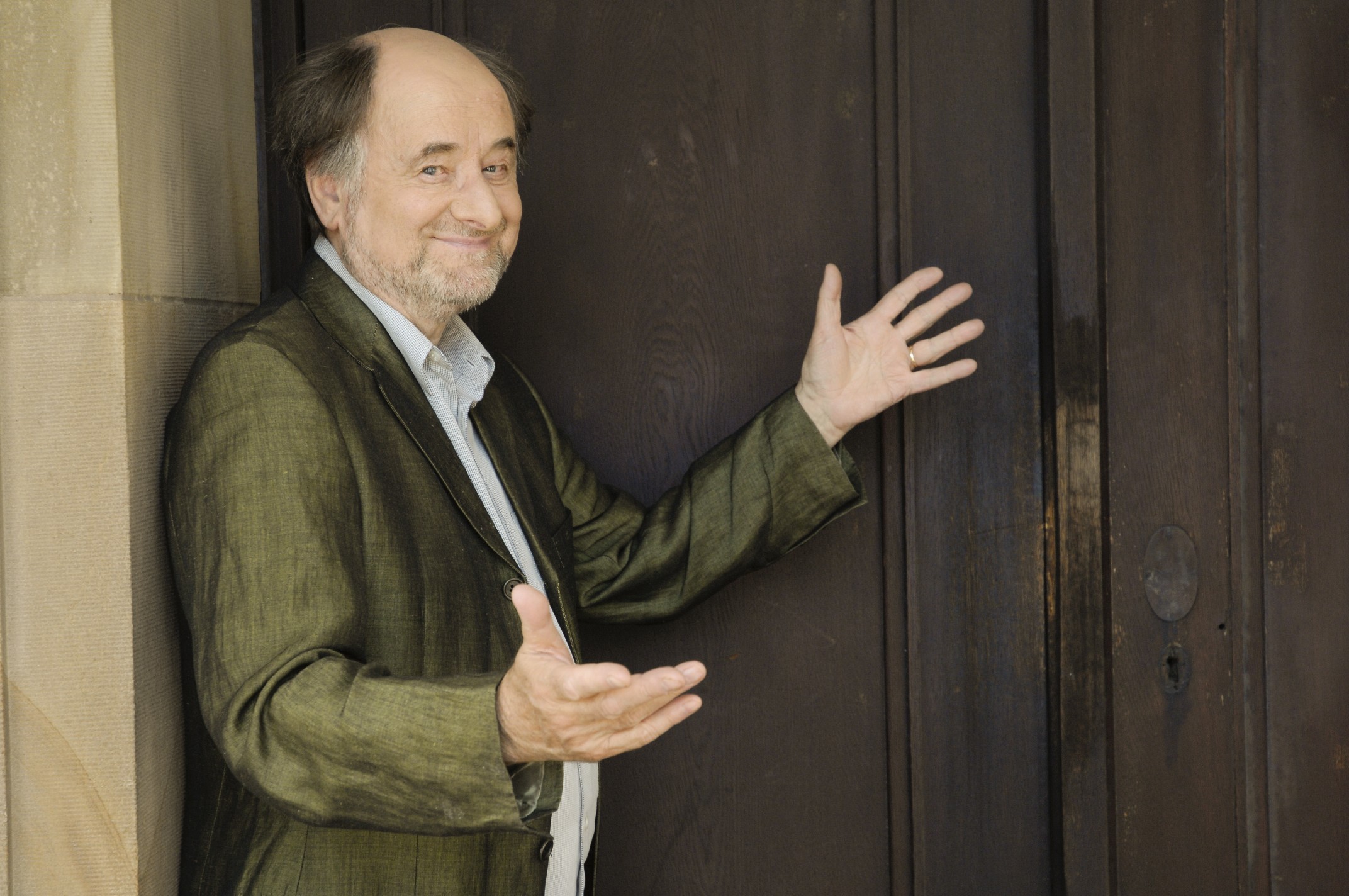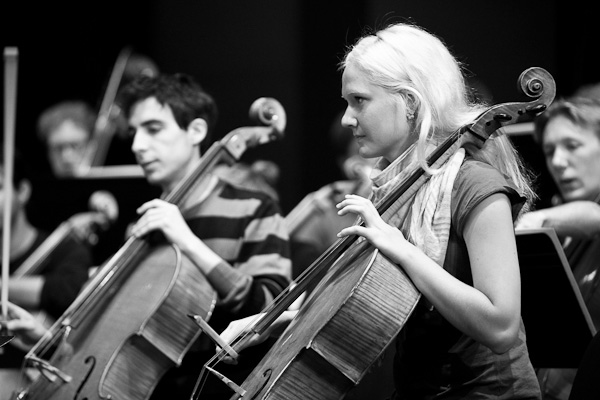Conductor electrified by Swiss mountains

After four years as head of the Zurich Chamber Orchestra, Chinese conductor Muhai Tang is passing the baton to Sir Roger Norrington.
Tang, 61, looks back on the experience and tells swissinfo.ch about Swiss audiences, the transformative power of classical music – and cows.
Although he’s spending Christmas in Shanghai, Tang will be back for the orchestra’s traditional New Year’s Eve concert in Lucerne and then a concert in Zurich on January 1, both featuring famous Finnish bass Matti Salminen.
swissinfo.ch: You’ve worked all over the world, with virtually every major orchestra. How does working in Switzerland compare?
Muhai Tang: Working conditions and living conditions are very good. Everything is so convenient, and public transport is very good. If you jump on a train, you can be anywhere in Switzerland in a few hours.
Musically, the conditions are very solid. It’s a very good working atmosphere. What’s missing a little bit is spirituality. I’d just say that maybe it’s not exciting enough. To make the arts – to make live music – you need more excitement.
swissinfo.ch: Do artists need adversity? Is Switzerland too comfortable?
M.T.: Wonderful living fulfils one side of music. For example composers like Mendelssohn also had wonderful lives – you can feel that in what they wrote: charming, happy music. But there’s a big part of the arts that involves disaster and terrible lives. For a musician it’s quite important to live with both.
That’s why I travel a lot. I went to South America and conducted in Colombia because I wanted to touch the people there – not only musicians. I want to see what life is like, what people feel. This helps when you make music for an audience.
swissinfo.ch: What are Swiss audiences like?
M.T.: Very warm. Also very quiet. I enjoy the relationship with all audiences. Italian audiences are all “Bravo! Bravi!” and very excited; Japanese audiences are very silent during concerts but afterwards they come along and are real fans – crazy about music! They ask me to sign scores and so on. This happens very rarely in Switzerland. It’s just different – a different culture.
swissinfo.ch: What have been your musical highlights from the past four years?
M.T.: A highlight was the small form [whereas symphony orchestras can comprise up to 100 musicians, chamber orchestras rarely go above 40]. I’ve always been a symphony conductor and a big opera conductor, but being chief of a chamber orchestra really is a new challenge. I’ve been wanting to work on Haydn symphonies or even baroque music for a long time, but previously I never had much chance.
For four years I’ve been able to study and work hard on this direction. It’s been one of the most beautiful times for me. A period in which I’ve really touched on something that before I didn’t know that well. [Listen to audio clip of Tang conducting Mozart.]
swissinfo.ch: Have you had time to see much of Switzerland?
M.T.: I visited a few major towns when on tour. I sometimes go skiing – the air makes you so fresh and suddenly it’s like you’re in another world. To be honest, because my work schedule is so full I don’t know Switzerland that well yet.
I recognise myself mostly as a world citizen. I don’t belong to Asia, China or any other country. I just belong to music. I was in South Africa during the football World Cup – I conducted there and enjoyed it very much. Normally you never think Africa can somehow be connected with classical music, but it is.
swissinfo.ch: Daniel Barenboim is known for his work with the West-Eastern Divan Orchestra, which comprises young Arabs and Jews. Rostropovich – with whom you have worked – was a champion of human rights and famously gave an impromptu concert during the fall of the Berlin Wall. Are you tempted to use music to improve human rights in China?
M.T.: One of the main things I’ve done for a few years is the Germany-China youth orchestra – half are German, half are Chinese. Every summer we have a master class for ten days and then we go on tour around Germany and China.
I feel that’s very valuable work. People experience a change of culture. Maybe I don’t go directly to the real political questions or try to find a way to solve them; I just let the young musicians sit and work together. Even live together – we always put them in the same hotels. Later they build their relationships to be lifelong friends. This is what I can do.
Also, my country is still divided – we have Taiwan and mainland China. It’s not like Germany, now united. At the moment I’m working on both sides. Through my work I try to let people communicate.
swissinfo.ch: I suppose if you had given a concert in Oslo for Nobel Peace Prize Winner Liu Xiaobo, your career in China would be over.
M.T.: Maybe it would be disturbed at least. That’s why, to be honest, I don’t challenge that far. As a musician, I focus on what I can do with my work – otherwise I could have changed to become a politician. But my major love of course is music.
swissinfo.ch: You are now the chief conductor of the Belgrade Philharmonic Orchestra. What made you decide to leave Switzerland and go to Serbia?
M.T.: I wouldn’t put it that way. It’s not really leaving. We’re free musicians and we can live and work wherever we want. As chief conductors, we always have different relationships with different orchestras in different places.
Sometimes we live in the country – like now I live in Zurich – but one doesn’t have to live in a place. With the Belgrade Philharmonic I don’t think I’ll live there because my [six-year-old] child should have a solid education and not move around all the time. But I’ll obviously travel there for rehearsals, meetings and concerts.
swissinfo.ch: What will you miss about Switzerland?
M.T.: The beautiful landscape – I think there’s nothing like it on earth. The mountains, lakes, nature, animals – I love cows! Nature is very important to musicians because it reflects everything – you can feel life and the soul.
Muhai Tang was born in Shanghai in 1949.
He is the youngest son of celebrated Chinese film director Xiaodan Tang and brother of painter and poet Muli Tang.
Muhai Tang studied composition and conducting at the Shanghai Conservatory of Music, and furthered his studies in conducting at the Hochschule für Musik in Munich.
In 1983 Herbert von Karajan invited him to conduct the Berlin Philharmonic Orchestra. This led to repeat appearances with the Berlin Philharmonic and invitations from many of the world’s leading orchestras such as the London Philharmonic, Leipzig Gewandhaus, Staatskapelle Dresden, Bayerischer Rundfunk Symphony, Orchestre de Paris, Orchestre National de France, St Petersburg Philharmonic, Sydney Symphony and the San Francisco Symphony Orchestra.
From 2003 to 2006 Tang was chief conductor of the Finnish National Opera. He is now chief conductor of the Belgrade Philharmonic Orchestra.
He maintains close links with China, returning regularly to conduct in Beijing and Shanghai. In August 2007 he brought students from the Shanghai Conservatory to collaborate with the German Youth Orchestra, a project culminating in two performances at the Berlin Konzerthaus and then a tour through six major cities of China. This led to a Chamber Orchestra Tour in 2009.
The orchestra, which was founded in the post-war era, consists of a core of 22 strings, which can be expanded if needed.
It has an international reputation, performing at festivals, undertaking several world tours and working with well-known soloists. It has also built up a considerable discography. The ensemble makes around 40 performances a year.
The orchestra works with specialists for historical music for baroque, but its main emphasis has been on Vienna classics. Its repertoire encompasses romantic and classical as well as modern.

In compliance with the JTI standards
More: SWI swissinfo.ch certified by the Journalism Trust Initiative















You can find an overview of ongoing debates with our journalists here . Please join us!
If you want to start a conversation about a topic raised in this article or want to report factual errors, email us at english@swissinfo.ch.